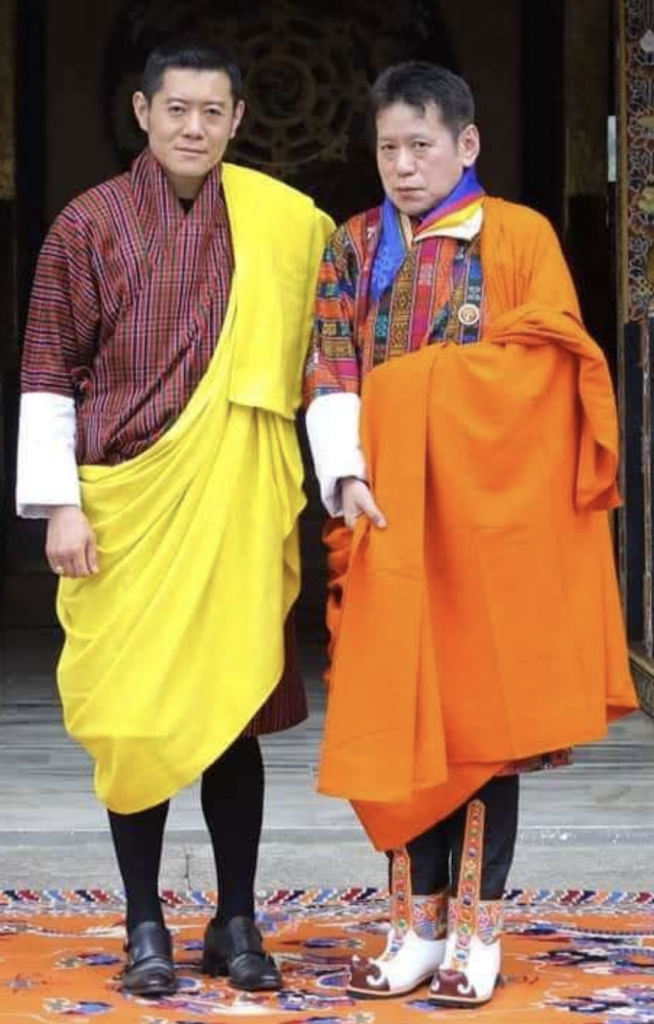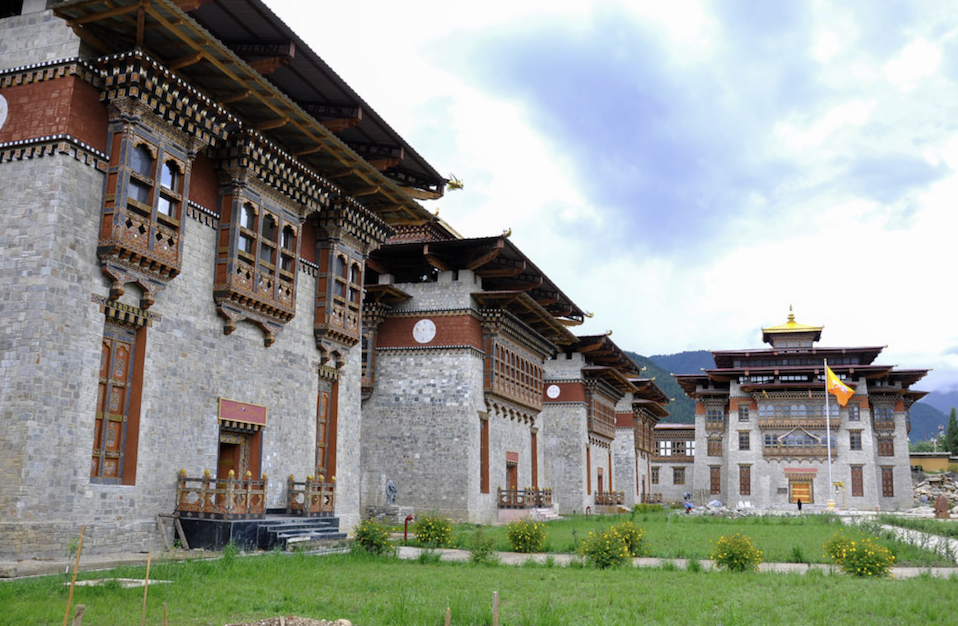You cannot question the authority for its actions.
This was the primary principle of governance in Bhutan for centuries. Post ‘guided democratic’ changes, little has changed to diffuse the perception among the elite members of Bhutanese community that it is a void in democracy.
Misuse of authority and privilege for abuse and personal gain is a culture in Bhutan. Only a handful of cases appear in the public domain whereas vast majority are socially and economically silenced. The incident that come in the public domain also fail to hold its presence or leave a mark in absence of conscious civil society, strong media and awaken citizens.
The last instance of such event is from eastern district – wife of a judge in a subdivisional court abusing and assaulting her neighbour for reasons not known. The incident happened in the last week of April but came into limelight almost a month later.
During this period, the victim was reportedly given pressure for compromise to settle the case outside the court and police. It is a traditional practice in Bhutan to settle cases outside courts or tribunals. In many cases, courts too encourage such practice obliquing its obligation of giving a verdict when case is registered for judicial proceedings.
The Wamrong case drew public attention, increasing criticism of the judicial system, justice delivery, police behaviour and social hierarchy that is fuelling abuses and prejudices based on social status of an individual. The general sentiment that justice delivery is biased is ever increasing.
The incident
The case involved Tshering Yangki, 52, wife of a judge in Wamrong sub-divisional court under Trashigang district, who assaulted her neighbour Sonam Peldon, 38. Peldon’s husband works as sweeper in the Wamrong court.
Yangki verbally attacked Peldon the moment she spotted her in the kitchen garden and demanded that she remain out of her sight.
Media reports quote Peldon saying, “I did not say anything and instead stood respecting her. My son called me inside the house the moment she came towards me. I went inside my house, but she followed me in. My husband and my kids tried to stop her, but from nowhere, she pulled my hair. That is the only thing that I remember. But later, I started having a severe pain on my neck”.
That evening the judge, Yangki’s husband, visited Peldon’s home on pretext of getting more information about the incident. He snatched away mobile phone of Peldon’s son and deleted video clip of Yangki pulling victim by her hair that the son had taken during altercation. The judge mentioned, he would be in trouble if the video clip circulated on social media.
Peldon was threatened with consequences such as denial of No Objection Certificate (NOC) if the family pursued with the dispute and lodged case with police. The victim was admitted to local Riserboo hospital for treatment of injuries and was released on the same day. According to victim’s statement, she was supposed to be admitted to hospital for overnight monitoring but was asked to go home following a conversation between the doctor and the local police chief.
The victim complained that she also received call pretending to be from RENEW, a patronage of royal family that works on women issues, asking to settling the case outside the court. Media reported, RENEW had not contacted the victim by that time.
Injury
The victim received treatment at Riserboo hospital twice for neck pain. However, as her situation worsened, she was admitted to Mongar Referral Hospital on May 5. She was discharged after 11-days of treatment in Mongar. A CT scan report from the hospital showed fracture in the outer cortex of left lamina of C2 (cervical spine) vertebra, which is non-displaced and not compressing the spinal cord. Riserboo hospital had earlier claimed they could not ascertain any injuries from X-ray.
The period of her stay in Mongar hospital magnifies the severity of the physical injury Peldon had received. The case was reported to police by victim’s brother initially. The police persuaded for compromised settlement outside legal proceedings. However, the victims formally lodged the dispute to police on May 4 as injuries started taking toll on family situation. The husband had to take off from work to take care of his wife and children.
The police formally registered the case in Wamrong court on May 21. Police claimed delay was due to the time taken to received medical report from Mongar Referral Hospital. The case received media attention only when it was registered in the court. Netizens flocked to social media to express shock and pour venom on assaulter, police and judiciary system. The judge’s wife has confessed to trespassing, but she denied battering the victim. However, police charged her for battery as per the evidence they gathered.
It has not been reported if police visited Peldon’s house to ascertain the incident location and if Yangki was interrogated.
Though the incident happened at Peldon’s house, the charge sheet submitted by Bhutan Police alleged Peldon of assaulting Yangki and that Peldon’s son using abusive language. The police charge sheet was inconclusive whether the actions of Peldon were assault or in defence of attack by Yangki. The charge sheet lost the balance on the case and presented in the way to project victim as the assaulter. The charge sheet must be scrutinised for independence in the context that local police chief had interfered with Riserboo hospital medical professional to allow victim for overnight stay in hospital for treatment.
Court action
The victim requested that the case be heard in capital where she wanted to go for further medical treatment. The Wamrong subdivisional court forwarded the case to district court in Trashigang to avoid conflict of interest as the case involved a judge working in the court case was registered.
In response to communication, the Supreme Court and acting Chief Justice Kuenlay Tshering directed the district court to return the case to Wamrong. The reason given was that district court was far from where victim lives and may become inconvenient for the victim. He failed in taking initiative to hear the case in Thimphu as requested by the victim for her convenience, hire lawyer if required and to ensure continued medical treatment.
It is very likely that victim’s medical condition would worsen if timely treatment was not provided in a good hospital. This is very unlikely to happen as victim is forced to stay in village and attend court procedures in the local court.
Amidst the controversy, the country received its new boss. King appointed Chogyal Dago Rigdzin as the new Chief Justice. No Bhutanese dare to question the action of king. If it was a functional democracy, this appointment would have invited a public outcry – how can a person with no legal experience can lead judiciary.

Chogyal worked in the Election Commission for almost 15 years – first 10 years as commissioner and rest as chief commissioner. He comes from Wamrong where the incident in question comes from. He was a student of Development Administration and worked under home ministry. He was Sub-divisional head in Sarpang when he was named commissioner in 2006.
As soon as his appointment was made public, this physical abuse case of Wamrong went off the media radar and scrutiny by the netizens. The case may see the fate of another high-profile case involving journalist Namgay Zam and Ap Sonam Phuntsho in 2016.
Public criticism
Bhutanese judiciary lack precedence of good justice delivery. Until recently, it was the rubber stamp of the royal family, and still is to some degree. The judiciary is heavily influenced by those in power. In any case involving commoners against influential individuals, laymen are very certain to lose the battle.
The first reason: being a close-knit society, there are high chances of judges and the influential individuals knowing each well, or even shared business interest is unavoidable. Second reason being lack of enough lawyers to represent commoners. The country has a handful of lawyers, all based in Thimphu. They prefer representing those individuals who can pay a good sum for the cases. The government lawyers hardly entertain cases of those with lower social standing. The situation is worst in remote areas such as Wamrong where there are no lawyers to speak on behalf of the victim. The result is illiterate, poor and those having no relation in the influential circle practically get no justice.
Verdict
Incompetency of justice delivery will gradually erode public trust on judiciary. Bhutanese is moving on this path. A few major cases in the last decade has variably increased public sense that fight between those in power and not result in powerless losing the legal battle. Until the perception of social and economic hierarchy dominates the Bhutanese culture and justice delivery parameters, questions will continue to be raised against the judicial system of the country.
Bhutan must raise the bar of ethical behaviour among its legal practitioner. On top of that, the country has the challenge to ensure its citizens get enough legal representation in the court – not just a few influential individuals – by increasing the number of public lawyers available to individuals like Peldon.
Democracy is about enhancing equality and providing justice.

One thought on “Wamrong case: a litmus test for Bhutanese judiciary”
Comments are closed.